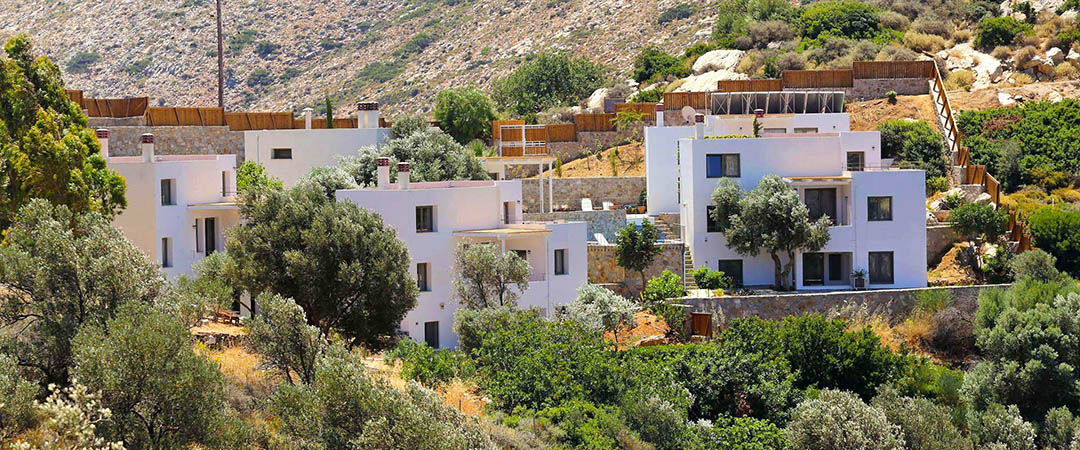Crete, with its stunning landscapes, rich history, and vibrant culture, is an ideal place to embrace an eco-friendly lifestyle. The island’s natural beauty and biodiversity inspire residents and visitors alike to adopt sustainable practices that help preserve the environment for future generations. Here are some tips for living an eco-friendly life in Crete, covering areas such as energy use, waste management, transportation, and food consumption.
1. Sustainable Energy Use
Solar Power: Crete enjoys abundant sunshine year-round, making solar power an excellent option for sustainable energy. Installing solar panels on your home can significantly reduce your reliance on fossil fuels and lower your energy bills. Many local companies specialize in solar installations, and government incentives may be available to help offset the initial costs.
Energy Efficiency: Simple changes can make your home more energy-efficient. Use LED light bulbs, which consume less electricity and last longer than traditional bulbs. Invest in energy-efficient appliances, and ensure your home is well-insulated to reduce heating and cooling needs. Additionally, unplugging devices when not in use and utilizing natural light can further cut down on energy consumption.
2. Water Conservation
Rainwater Harvesting: Collecting rainwater for use in your garden or household can greatly reduce your water usage. Installing rain barrels or a more elaborate rainwater harvesting system can provide a sustainable water source during the drier months.
Efficient Water Use: Install low-flow fixtures on faucets, showers, and toilets to reduce water consumption. Be mindful of water use by fixing leaks promptly, using a broom instead of a hose to clean outdoor areas, and watering your garden during early morning or late evening to minimize evaporation.
3. Waste Management
Recycling: Crete has a growing recycling program, and separating your waste is essential. Recycle paper, plastic, glass, and metal by using the designated bins provided by your local municipality. Composting organic waste is another great way to reduce the amount of waste sent to landfills and create nutrient-rich soil for your garden.
Reduce and Reuse: Minimize waste by choosing reusable products over single-use items. Use cloth bags for shopping, stainless steel water bottles, and glass containers for food storage. Repairing and repurposing items instead of discarding them can also help reduce waste.
4. Sustainable Transportation
Public Transport: Crete’s public transportation system, including buses, is a convenient and eco-friendly way to travel around the island. Opt for public transport over driving to reduce your carbon footprint.
Biking and Walking: With its beautiful scenery and mild climate, Crete is perfect for biking and walking. These modes of transport not only reduce emissions but also provide health benefits. Many towns and cities have bike rental services and dedicated cycling paths.
Carpooling: If you need to drive, consider carpooling with friends or colleagues. This reduces the number of vehicles on the road, leading to lower emissions and fuel savings.
5. Sustainable Food Choices
Local and Seasonal Produce: Supporting local farmers by purchasing seasonal produce reduces the carbon footprint associated with transportation and promotes the local economy. Visit farmers’ markets to buy fresh, organic fruits and vegetables.
Plant-Based Diet: Incorporating more plant-based meals into your diet can significantly reduce your environmental impact. Meat production is resource-intensive, so eating less meat and more plant-based foods helps conserve water and reduce greenhouse gas emissions.
Grow Your Own Food: Starting a garden allows you to grow your own organic produce, ensuring you know exactly what goes into your food. Even small spaces can accommodate herb gardens or container vegetables, contributing to a more sustainable lifestyle.
6. Eco-Friendly Products
Natural Cleaning Products: Many conventional cleaning products contain harmful chemicals that can pollute the environment. Choose natural, eco-friendly alternatives or make your own cleaning solutions using ingredients like vinegar, baking soda, and lemon juice.
Eco-Friendly Personal Care: Opt for personal care products that are free from harmful chemicals and packaged in recyclable or biodegradable materials. Consider using solid shampoos, bamboo toothbrushes, and reusable razors.
7. Community Involvement and Education
Join Local Initiatives: Participate in local environmental groups and initiatives to stay informed about sustainability efforts in Crete. Volunteering for beach clean-ups, tree planting, and conservation projects can make a significant impact.
Educational Workshops: Attend workshops and seminars on sustainability to learn more about eco-friendly practices. Sharing this knowledge with others helps spread awareness and encourages more people to adopt sustainable lifestyles.
8. Eco-Friendly Tourism
Support Sustainable Businesses: When traveling within Crete, choose accommodations and tour operators that prioritize sustainability. Look for certifications like Green Key or Eco Label, which indicate eco-friendly practices.
Responsible Tourism: Practice responsible tourism by respecting local wildlife and natural habitats, reducing waste, and supporting local businesses. Avoid activities that exploit animals or damage the environment.
Conclusion
Living an eco-friendly lifestyle in Crete is not only beneficial for the environment but also enhances your quality of life. By adopting sustainable practices in energy use, water conservation, waste management, transportation, and food consumption, you can contribute to preserving the island’s natural beauty for future generations. Embrace the principles of sustainability, get involved in local initiatives, and make conscious choices to reduce your ecological footprint. Crete offers a perfect setting for living in harmony with nature, and with these tips, you can make a positive impact on the island and beyond.


